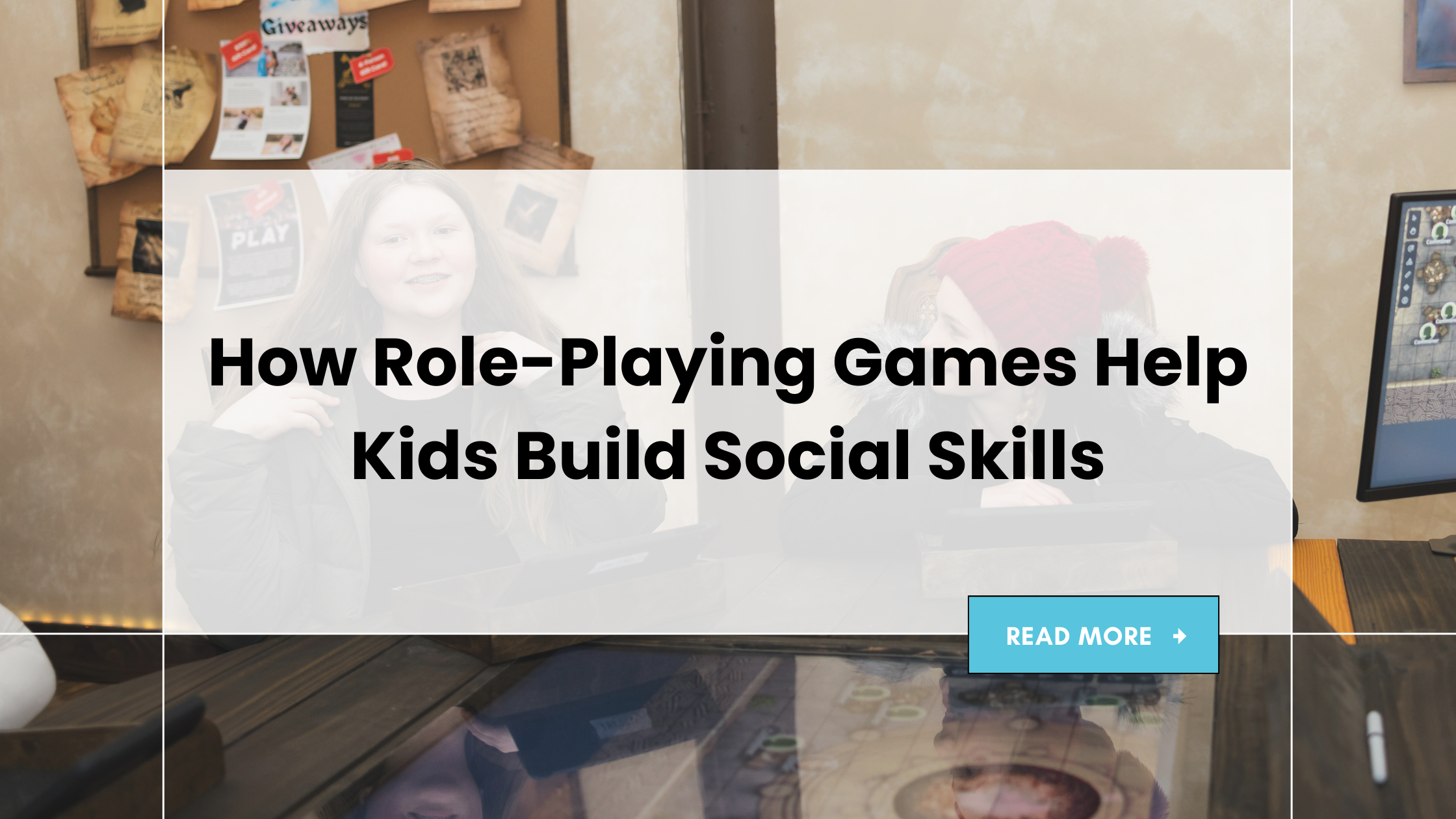
Social skills are essential for success in every aspect of life, from school to relationships and beyond. Yet, teaching these skills in a meaningful way can often be challenging. Role-playing games (RPGs) like Dungeons & Dragons provide a unique and engaging way for kids to practice communication, collaboration, and empathy. In this article, we’ll explore the many ways RPGs support the development of social skills and how these lessons extend far beyond the game table.
In RPGs, players work together to achieve a common goal, whether it’s solving a puzzle, defeating a powerful foe, or negotiating peace between warring factions. The group’s success depends on their ability to communicate effectively, delegate tasks, and appreciate each player’s unique contributions.
For example, one player’s character might be a charismatic leader skilled in diplomacy, while another excels in tactical combat. By leveraging each character’s strengths, players learn to value different perspectives and understand that teamwork is about combining abilities to achieve the best outcome.
Role-playing games also allow players to rotate leadership roles, giving each participant the chance to guide the group’s decisions. This collaborative dynamic encourages kids to listen to others, adapt to different leadership styles, and recognize the importance of cooperation.
Effective communication is a cornerstone of RPGs. Players must clearly articulate their ideas, strategies, and intentions to the group, whether they’re planning a daring heist or explaining their character’s actions during a tense moment in the story.
For shy or introverted kids, RPGs provide a low-pressure environment to practice speaking up. Role-playing as a character can make it easier to express themselves, as they’re speaking on behalf of their character rather than themselves. This helps build confidence in public speaking and group discussions.
Additionally, players often engage in in-character dialogues, which mimic real-life conversations. Whether they’re bargaining with a merchant or persuading a town’s mayor to offer assistance, these interactions help kids refine their conversational skills and learn to navigate social cues.
Disagreements are inevitable in RPGs, whether they occur between characters in the story or among players discussing the best course of action. These moments present valuable opportunities for kids to practice conflict resolution.
For example, two characters might disagree on how to handle a captured enemy. Should they release them, interrogate them, or turn them over to the authorities? The players must weigh their options, consider the group’s goals, and find a compromise that satisfies everyone. These scenarios teach kids how to navigate conflicts respectfully, listen to differing opinions, and work toward a shared solution.
In addition to in-game conflicts, players may occasionally clash over rules or decisions. Learning to resolve these disagreements constructively reinforces the importance of patience, understanding, and effective communication.
One of the most unique aspects of RPGs is the opportunity to step into someone else’s shoes. By role-playing as characters with different backgrounds, personalities, and motivations, kids learn to see the world from new perspectives.
For instance, a player might create a character who comes from a vastly different cultural background than their own. As they navigate the character’s challenges and triumphs, they gain a deeper understanding of experiences and viewpoints that differ from their own. This ability to empathize with others is a key component of social intelligence.
RPGs also often include moral dilemmas, such as choosing between personal gain and helping others. These scenarios encourage kids to consider the consequences of their actions and how they impact the group and the larger story. This practice of weighing different perspectives builds emotional intelligence and decision-making skills.
Taking on the role of a hero, diplomat, or adventurer allows kids to explore different facets of their personalities in a safe and supportive environment. By making decisions, solving problems, and contributing to the group’s success, kids gain confidence in their abilities.
For example, a player who successfully navigates a tricky negotiation or defeats a challenging foe can carry that sense of accomplishment into real-life situations. Over time, this builds self-assurance and a willingness to take on leadership roles both in and out of the game.
Role-playing also encourages kids to take risks and try new things without fear of failure. Whether they’re attempting a daring rescue or experimenting with a creative solution, the supportive nature of RPGs allows them to learn from mistakes and grow stronger as a result.
Role-playing games like Dungeons & Dragons offer a unique and engaging way for kids to develop social skills that will serve them throughout their lives. Through collaboration, communication, empathy, and confidence-building, RPGs provide a safe space for kids to practice and refine these essential abilities. If you’re interested in giving your child the opportunity to build these skills while having fun.